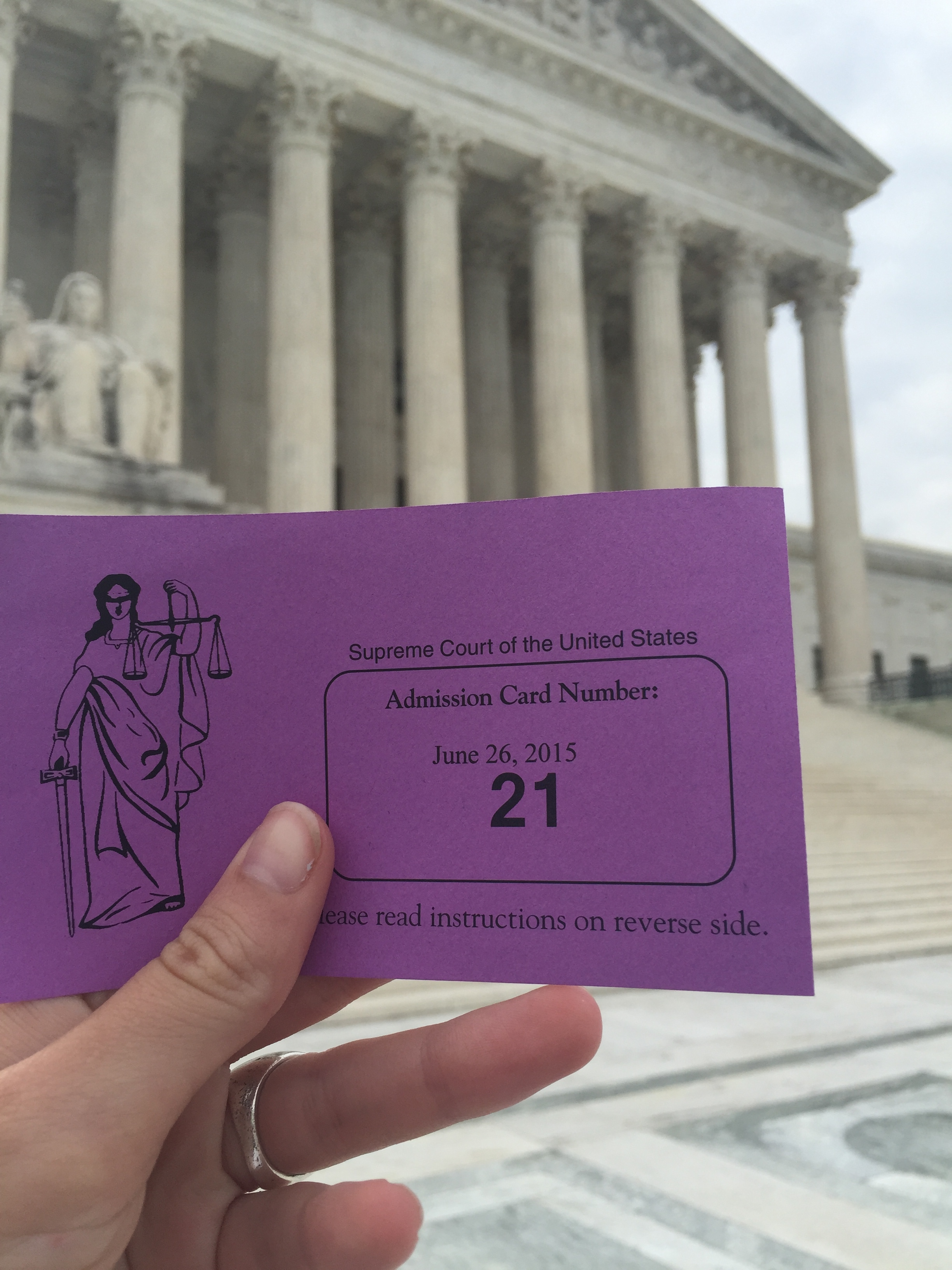It’s three in the morning and the Capitol building stands like an illuminated skeleton in the midst of its reconstruction. I’m lying on the sidewalk in front of the Supreme Court. A line is already beginning to form in anticipation of Congress releasing their decision on Obergefell v. Hodges — their decision on gay marriage.
My roommates and I huddle together, dressed in business attire, but with baggy sweatshirts over top. We are determined to get in. We are determined to see history in the making. There is no guarantee that the justices will announce their decision on the marriage equality case that day, but we can feel it in our bones. The crowd quickly files in after us, made up of people with all different backgrounds. There is a crowd of Dartmouth students and a recently graduated law student that bused in last night from New York.
There is an overwhelming atmosphere that we are about to witness a revolutionary act.
The hours go by slowly. The people on the sidewalk band together though, telling jokes and stories; a man walks around handing out donut holes. We don’t know how many people will get in. The line has suddenly made its’ way around the corner of the block and it keeps growing and growing. The media has set up lighting and camera equipment in front of the Supreme Court: Fox, CBS, C-SPAN — everyone is there. At 7:30 an officer of the Court starts handing out cards. There are only fifty. I am number twenty-one and my body goes into shock as the small purple card finds its way into my hands.

We are quickly ushered into the Court. I try to relax and brace myself for disappointment. There are other cases on the docket: the EPA, the death penalty. Just being in the Supreme Court is an exciting experience, but I couldn’t help but hope that the opinion on Obergefell would be announced.
Walking into the Supreme Court chamber is daunting. The room is grand, and as you shuffle into the benches you can’t help but notice the nine chairs standing tall at the front of the room. We all stood in unison as the judges entered. Suddenly, before me stood two women I admire greatly, Sonia Sotomayor and, of course, the Notorious RBG. Though Ginsburg was half the height of the chair, she still radiated power.
“Obergefell v. Hodges,” read off Kennedy.
The air became static.
Nobody dared take a breath.
Directly in front of me sat the plaintiff, Jim Obergefell. His body became tense. I grasped onto my roommates hand in fear and in excitement. My heartbeat escalated; everything had suddenly become very real. This ruling would not only dictate the legitimacy of current same sex marriages but would decide if all states were federally mandated to recognize marriages within the LGBTQ community. Justice Kennedy began to read the opinion of the Court. I struggled at first with his language. I wanted to immediately know the ending.
“In forming a marital union, two people become something greater than once they were… It would misunderstand these men and women to say they disrespect the idea of marriage,” declared Kennedy.
My hand tightened around my friend’s.
We had won.
The United States would be forever changed, and I had been lucky enough to witness it.
Tears streamed down Obergefell’s face. I could not help the tears falling from my own eyes, despite not having any role in the case. I can only imagine the overwhelming emotions he must have felt. Looking around the room, raw emotion was so innocently exposed: empowerment, thankfulness, and love. The decision was five to four—it was close, but it didn’t matter. We won.
Nothing could take away the pride that was in that courtroom. As we exited the courtroom, I congratulated Obergefell. I thought to myself about my children and grandchildren, and how one day I would tell them stories of this moment, this court case.
When we exited the building, the world had exploded into color.

